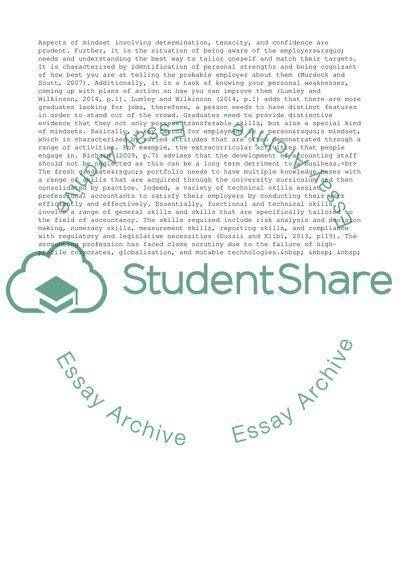Cite this document
(Employability and Skill Development Assignment Example | Topics and Well Written Essays - 2000 words, n.d.)
Employability and Skill Development Assignment Example | Topics and Well Written Essays - 2000 words. Retrieved from https://studentshare.org/management/1686952-skills-development
Employability and Skill Development Assignment Example | Topics and Well Written Essays - 2000 words. Retrieved from https://studentshare.org/management/1686952-skills-development
(Employability and Skill Development Assignment Example | Topics and Well Written Essays - 2000 Words)
Employability and Skill Development Assignment Example | Topics and Well Written Essays - 2000 Words. https://studentshare.org/management/1686952-skills-development.
Employability and Skill Development Assignment Example | Topics and Well Written Essays - 2000 Words. https://studentshare.org/management/1686952-skills-development.
“Employability and Skill Development Assignment Example | Topics and Well Written Essays - 2000 Words”, n.d. https://studentshare.org/management/1686952-skills-development.


